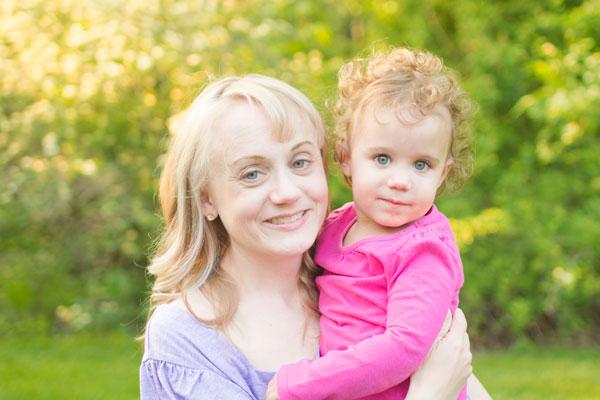
“She now weighs only five pounds and zero ounces,” said the doctor.
I was at the pediatrician’s office for my daughter’s first check-up, just three days after she was born. I already knew that they would be concerned about the amount of weight she had lost in the hospital. She was only 5lbs 12oz when she was born two weeks early and the ounces had continued to roll off. Now my little girl was about to dip to 4lbs and I was horrified. I somehow felt worse knowing that this wasn’t the first time that I had struggled to get a baby of mine to gain weight.
Six years earlier, at my son’s first checkup, I remember the doctor’s puzzled announcement that he not gained any weight. Being a new mom, I thought it was odd that they expected him to gain weight in just a few days after coming home from the hospital. The doctor asked how breastfeeding was going. I really didn’t know how to answer since I had only been nursing for few days. The hospital nurses and lactation consultant all seemed to think I was doing well, but I felt like he wasn’t nursing for long enough. I had read all of the books and knew that he should nurse for 15 minutes on each side, but he would fall asleep after only a few minutes. I assumed he was full. “Let’s see how it goes and have you come back again next week,” the doctor said optimistically.
The next week, I tried hard to get my little boy to nurse more but he would inevitably fall asleep after five minutes. I would spend sometimes an hour, desperately trying to get him to eat, only to be uncertain if he ate enough, and exhausted, knowing I was going to shortly start the process all over.
Back at the pediatrician’s office, I anxiously waited to hear how much weight he had gained. “He is still at his birth weight.”
How could he not be gaining weight?
What was I doing wrong? I did not understand. The doctor said, “Try giving him a bottle,” and so I did. My tiny boy drank his first bottle quickly and was so full and satisfied. It was the first time, I had seen a baby “milk-drunk”. As he drifted off to sleep with a smile, I thought that it seemed easier to just do bottle feedings. I started exclusively pumping and gave up on breastfeeding.
At the pediatrician’s office, the doctor was very pleased with the amount of weight he had gained and I exhaled like I had been holding my breath for three weeks. My baby was on the right track! The doctor asked me what I had done differently. I told her, “I just switched to feeding him by bottle.” The doctor’s face fell. She was obviously disappointed to hear this. I felt confused. Hadn’t I done what she had suggested? I thought that I must be doing something right because he was gaining weight.
But sadly, I did not know that I needed to pump for every bottle feeding and my milk supply was not keeping up with my baby’s demand. After a few months, I started supplementing with formula. I still pumped six times a day until he was six months old and then four times until he was nine months old, before stopping and giving formula exclusively. What was important was that my little boy was healthy and we made our way to his first birthday.
Before he turned two, my second son was born and I was determined to make breastfeeding work. I wanted to breastfeed because I thought that was the most beneficial option for my baby and I. I was so ready to nurse and connect with my baby.
But my little boy had no interest in me or nursing.
He just slept. He did not eat the entire time I was in the hospital, which is longer when you’re recovering from a c-section. I tried not to panic. The nurses didn’t believe me at first, but then they realized I was right – he wasn’t eating. I had brought my breast pump and bottles with me to the hospital and started pumping right away to ensure that my milk supply would not be hindered. With the nurses’ help, I tried to encourage my baby to nurse with SNS, a Supplemental Nursing System, in which a syringe is filled with breast milk and pushed through a tube that is placed in the corner of the baby’s mouth while nursing so that the baby gets milk without doing the work of nursing but is encouraged to keep trying to nurse.
That first week, I worked so hard to get him to nurse. I would hold him in the crook of my elbow while the other hand held the syringe, squeezing milk into his mouth with the tube sitting in his mouth while also using a nipple shield. All of my determination went out the window after I became exhausted and afraid that he was not getting the nourishment he needed. I decided breastfeeding was not working and started feeding him by bottle.
For my two boys, I would sorrowfully say, “Breastfeeding just didn’t work for us.”
Other moms seemed to have such an easy time breastfeeding their babies. They could talk about all of their challenges and victories together. I often struggled with feeling left out of such conversations. I felt like breastfeeding was a badge of honor of motherhood that I had missed out on and could not relate to.

Four years later, our daughter was born and I was determined to not be overtaken by fear and stay the course in breastfeeding. I was thrilled when she seemed to take to nursing much better than her brothers. This gave me so much hope that I pushed the panic away when the nurses said she was losing too much weight. I knew the pediatrician would be concerned but I was shocked when she was about to dip under five pounds and that the doctor wanted to see her again in just three days for another weight check.
I was hopeful that we were going to see her weight progress, but each time we went to the doctor, there wasn’t enough improvement. Three ounces one visit, two ounces the next. Her newborn clothes were too big for her. A kind family member sent preemie clothes for her. I was frustrated and confused. What I was doing wrong? I really wanted an answer.
The doctor said, “Try giving her a bottle.”
Her words hit me like a bus and I couldn’t breathe. In my mind, I had failed again. Feeling distraught, I reached out to a fellow mom friend, telling her that I don’t understand what I was doing wrong and why I needed to switch to bottle feedings. She said, “You’re not doing anything wrong. A new baby does not have the energy to nurse. It’s just too tiring. So giving one bottle a day will help her get enough food until she gets stronger.” It was one of those moments where I could practically see the light bulb going off over my head. My friend’s helpful words made everything clear to me.
I had started pumping and freezing breast milk right away when we came home from the hospital. After we put our boys to bed, my husband would start feeding her a bottle while I pumped and we watched a show. That became our evening routine. She would often drink the whole bottle and then cry for more. We started watching several episodes in the evening, feeding, drinking, pumping, burping, crying until she was full and settled.
After a few more doctor visits, she finally started putting on more weight with her daily bottle. I was so relieved and happy that we had not given up on breastfeeding. A month later, she was nursing so well that we no longer needed to give her a daily bottle. We stayed the course and I continued to breastfeed her until she was fifteen months old.

Looking back, I am so thankful that I was able to have that experience of breastfeeding my daughter. I can also say that for me, the work of breastfeeding was a lot easier than always pumping, sanitizing and washing bottles and keeping milk cold when on the run. Each of my children had incredible appetites that grew steadily until they were eight weeks old and then dropped down to more manageable level in their third month. For each of them, I was sprinting to keep up for those first two months and then we got to a new pace that wasn’t so hectic. It was really hard to push through that time with our daughter, but we got through it, all healthy, just like with my boys.
I have to always remind myself that where I did not have the experience of breastfeeding my boys, I did not fail. Today, my oldest is an energetic seven year old, running everywhere he goes. My second son is a pensive five year old with deep thoughts, and my fragile baby girl is now a feisty two-year old who will wrestle them both to the ground. Those struggles in their first few weeks are very far away but, just thinking of them, still makes my heart skip a beat. Those challenges taught me that parts of our mom stories may look different and that is okay, but it is often in those areas that we are different where we need extra support.
There is help available.
I wish I had reached out for more help during those difficult times. Rochester Mom Collective gathers parenting resources so that moms have more tools in their tool-kit when they need them. If you have a new baby, you have challenges and if those include getting your baby to eat, speak with your doctor and check out our Guide to Breastfeeding Support Groups In Rochester for information on organizations that are here to help. If you know someone who just had a baby, reach out to them and ask how they are doing. They need a fellow mom friend now, more than ever.















